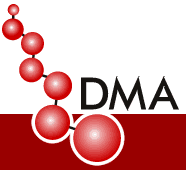Brian Dive Helps Companies Boost Business Performance
July 12, 2010
International organizational design expert Brian Dive helps businesses diagnose specific problems and prescribe solutions to enhance performance through DMA Consultancy Limited located in Surrey, UK. Mr. Dive is the author of "The Healthy Organization" and "The Accountable Leader." He has advised many major companies, most of them international, such as Air New Zealand, Barclays, Marks & Spencer, Reed Elsevier and Unilever. He has also worked with education departments in Australia and New Zealand, the UK Cabinet Office plus various UK Government Departments. Mr. Dive's ideas are not only efficient but universally applicable.
Balancing the Leadership Equation - Good organization and holding leaders to account
University of Bedfordshire White Paper Series - March 2011 Brian Dive and Clive Wright
Leadership studies invariably focus on only part of the leadership equation. Studies generally cover individual leaders, particularly those at the top of an organization. They are prone to ignore an important part of the leadership equation – the context in which a person has to lead. Furthermore leadership is needed throughout an organization, not just at the top. This is distributed leadership. If it is not effective throughout the organization the negative impact multiplies as the number of ineffective leaders increases. But little attention seems to be focused on this impact of wider leadership capability. Read Article (PDF)
More Articles and Papers by Brian Dive
Getting Rid of Grades to Boost Performance
a strategy+business exclusive 04/14/2009
The practice of assigning letter grades to jobs has had perverse consequences. Aligning jobs with accountability is a much better idea. Read Article (PDF)
Level Pegging
15 JANUARY 2009 | www.peoplemanagement.co.uk/features
Job evaluation was laid to rest in the 1980s and 90s – or so we thought. But did it ever really die, and is it now enjoying a revival? Duncan Brown and Brian Dive report Read Article (PDF)
Hierarchies for Flow and Profit
by Brian Dive
from strategy+business issue 52, Autumn 2008
In mid-2007 I ran a Webcast for
the management research organization
The Conference Board
on the subject of organizational
design and leadership.We polled the
executives of about 40 companies,
asking about their layers of management.
Upward of 72 percent said
they felt the business had too many
layers. Worse yet, they did not know
what the right number should be....Read Article (PDF)
Leadership Levels
Empowering Leaders To Deliver Customer Service
Does your organization have the right number of hierarchical tiers? Are your leaders fully empowered with decision rights? Are you motivating employees in line with your business strategy? Do you have information processes in place to coordinate activities and measure performance? Read Article (PDF)
Accountable leadership
Strategy Magazine Issue 17 I September 2008
The key ingredients of strategic leadership programmes are a platform
of clear accountabilities coupled with differentiating competencies,
which identify those leaders who have the potential to climb into higher
levels of accountability. Read Article (PDF)
Why do banks continue to waste talent?
jINDUSTRIAL AND COMMERCIAL TRAINING Research Paper Emerald Group Publishing Limited
Purpose – The purpose of this paper is to respond to a claim in a recent McKinsey publication (24 July
2008) that European banks are short of talent. The paper argues that banks generally waste talent. They
are not short of talent. It argues, based on the author’s book The Accountable Leader, also published in
July 2008, that accountability is the key to effective leadership and management of talent.
.Read Paper (PDF)
Bonsai or big fish?
PMCRR I Summer Volume 1.4
Consider talent. That is, you, your peers, your staff — within any organisation are those with drive, intelligence and leadership ability — ergo ‘talent’. Brian Dive looks at financial institutions and ponders the reasons for the lack of true leadership during these trying economic conditions. Read Article (PDF)
Global Management Trends…
Why Organization Design Is Critical To Global Leadership Development
Executive Action | No. 144 April 2005
Talented individuals cannot contribute to their full capacity
and potential in a cluttered, top-heavy organization that
blurs accountability and stifles initiative. Yet, for some reason,
the critical linkage between effective organization design and
successful leadership development is often ignored.
Read Article (PDF)
Grades, Rank and Status: Issues and Challenges
IThere have already been two articles in this series on the link between job evaluation and organization design. This one takes a closer look at the people implications of having a system of grades, ranks and the link with status. This linkage is often unintended but in most cases it contributes to ineffective structures, unwieldy bureaucracies, and administrative ‘grade’ or rank promotions. These invariably result in cost drift, hollow jobs and dissatisfied staff. Read Paper (PDF)
Job evaluation and organisation design – the solution
In this, the second of two articles, Brian Dive explores the relationship between job
evaluation and organisation design and explains why he thinks that organisation
design should drive reward systems. Read Paper (PDF)
Problems with job evaluation and organisation design
Most job evaluation schemes drive organisation design. In this article (the first of two on the topic), Brian Dive looks at why often the unintended consequence of this can be ineffective structures, unwieldy bureaucracies, and administrative “grade” or rank promotions, leading to cost drift, hollow jobs and dissatisfied staff.Read Paper (PDF)
